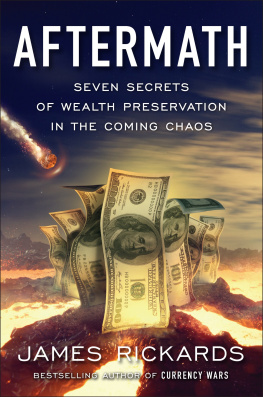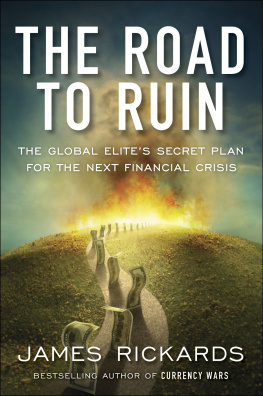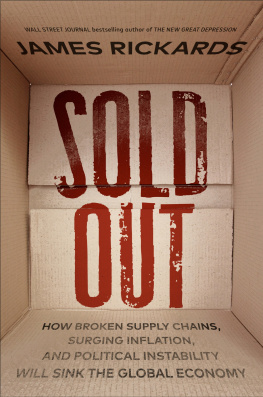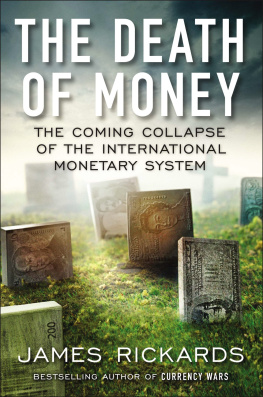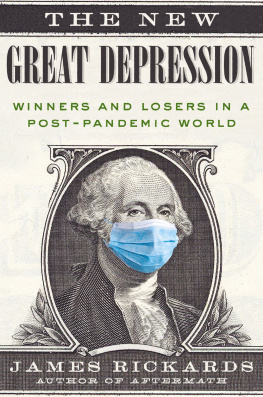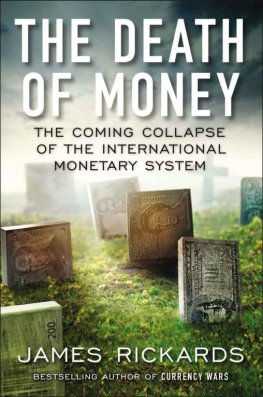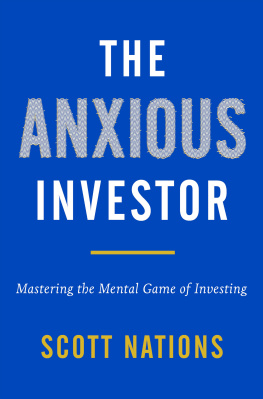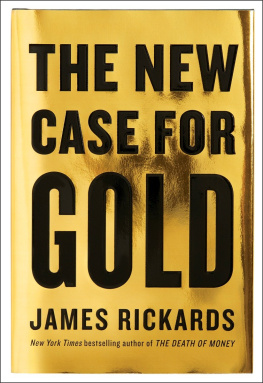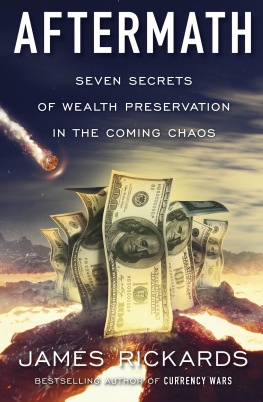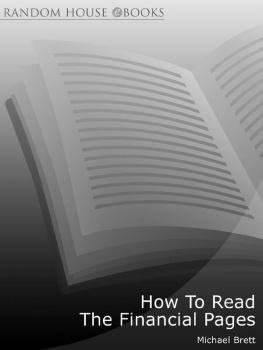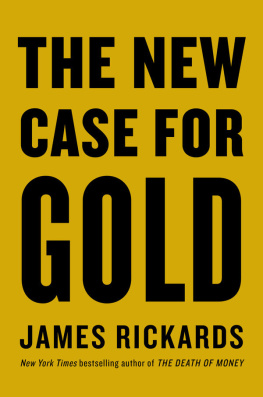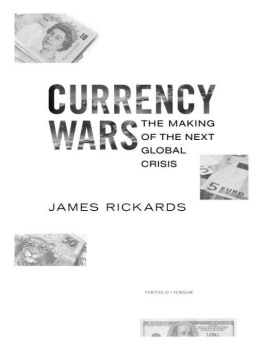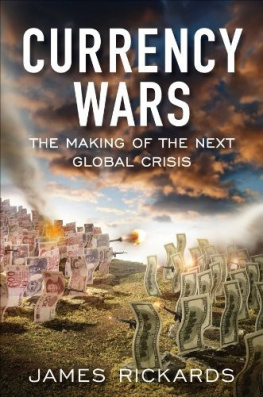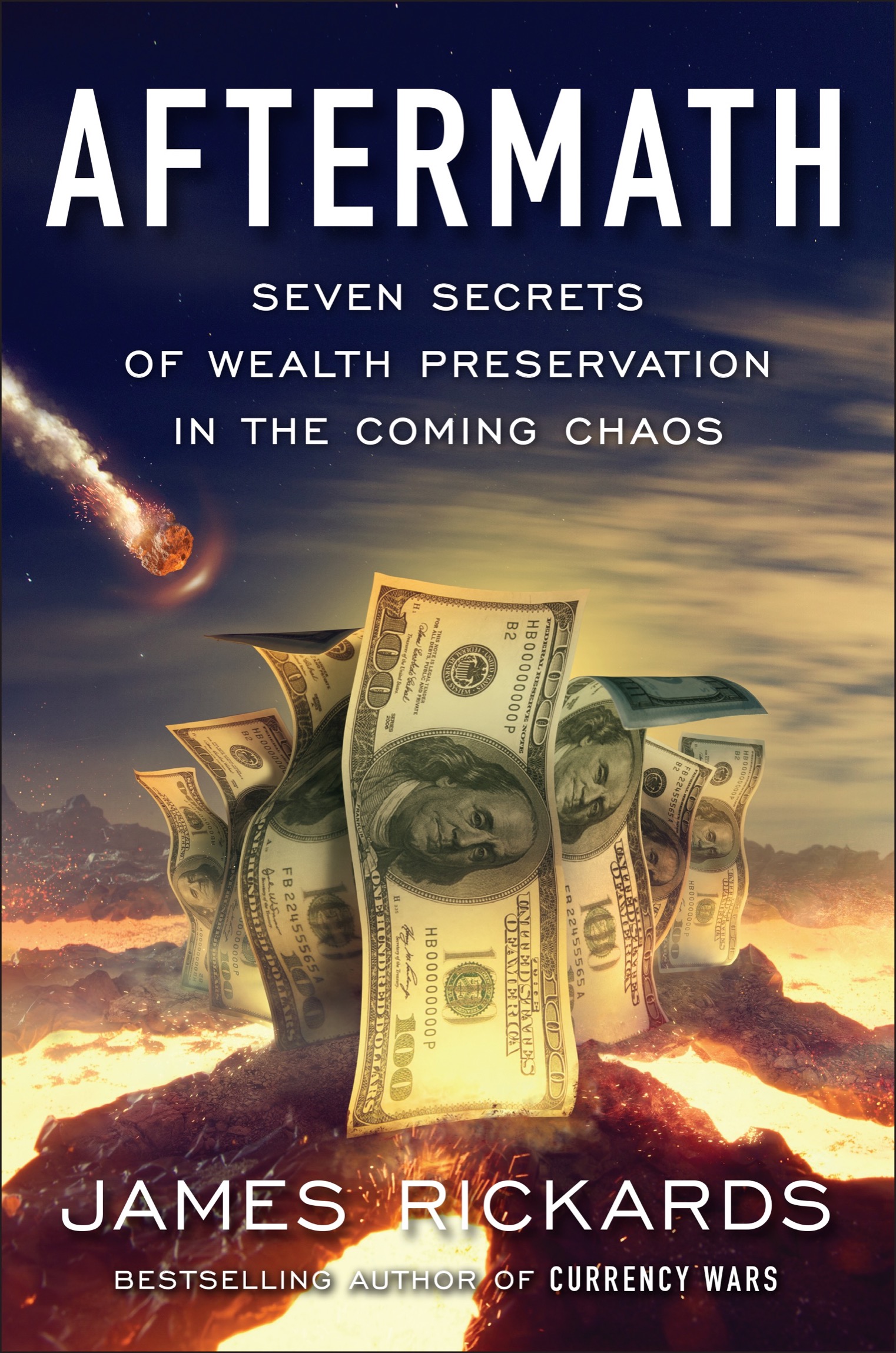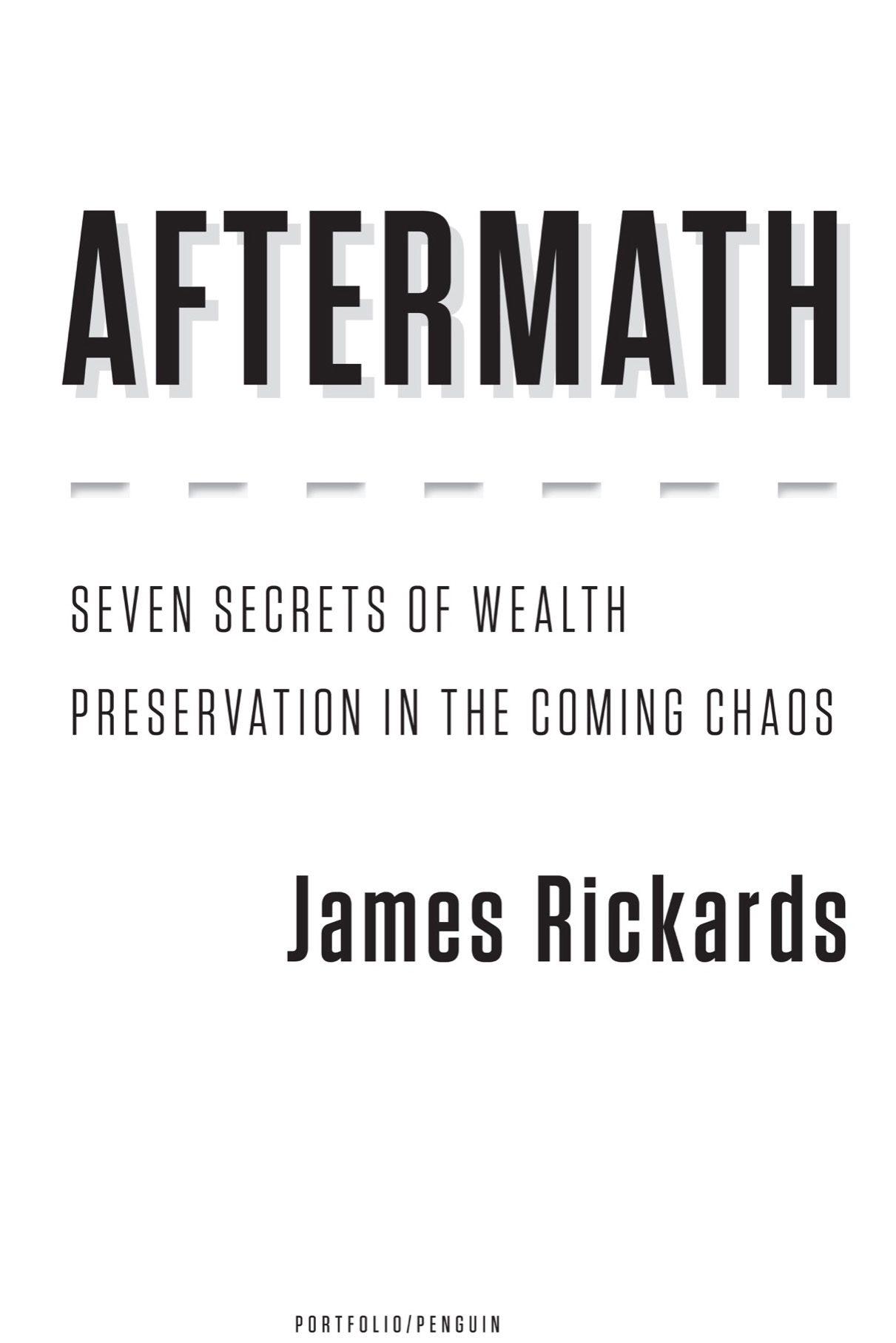ALSO BY JAMES RICKARDS
Currency Wars
The Death of Money
The New Case for Gold
The Road to Ruin

Portfolio/Penguin
An imprint of Penguin Random House LLC
penguinrandomhouse.com

Copyright 2019 by James Rickards
Penguin supports copyright. Copyright fuels creativity, encourages diverse voices, promotes free speech, and creates a vibrant culture. Thank you for buying an authorized edition of this book and for complying with copyright laws by not reproducing, scanning, or distributing any part of it in any form without permission. You are supporting writers and allowing Penguin to continue to publish books for every reader.
Library of Congress Cataloging-in-Publication Data
Names: Rickards, James, author.
Title: Aftermath : seven secrets of wealth preservation in the coming chaos / James Rickards.
Description: New York : Portfolio/Penguin, [2019] | Includes bibliographical references and index.
Identifiers: LCCN 2019010409 (print) | LCCN 2019012464 (ebook) | ISBN 9780735216969 (ebook) | ISBN 9780735216952 (hardcover)
Subjects: LCSH: Investments. | Financial crises. | FinanceForecasting. | Economic forecasting.
Classification: LCC HG4521 (ebook) | LCC HG4521 .R5154 2019 (print) | DDC 332.024dc23
LC record available at https://lccn.loc.gov/2019010409
Penguin is committed to publishing works of quality and integrity. In that spirit, we are proud to offer this book to our readers; however, the story, the experiences, and the words are the authors alone.
While the author has made every effort to provide accurate telephone numbers, internet addresses, and other contact information at the time of publication, neither the publisher nor the author assumes any responsibility for errors or for changes that occur after publication. Further, the publisher does not have any control over and does not assume any responsibility for author or third-party websites or their content.
Cover photo illustration: C.J. Burton
Version_1
For Ann
Then I watched while the Lamb broke open the first of the seven seals, and I heard one of the four living creatures cry out in a voice like thunder, Come forward. I looked, and there was a white horse, and its rider had a bow. He was given a crown, and he rode forth victorious to further his victories.
Revelation 6:12
CONTENTS
INTRODUCTION
No Way Home
This book is about the aftermath of the 2008 global financial crisis and efforts by central banks first to prevent a complete collapse of capital markets, later to revive self-sustaining growth, then finally to withdraw from continual policy intervention. It also warns that the crisis never really ended and offers a path to preserve wealth in the next phase. Like the Odyssey, this ten-year journey cannot be understood without reference to the struggle that preceded it. We consider the before, the after, and the future of the greatest financial crisis since the Great Depression.
In Homers epic poem the Odyssey, Scylla and Charybdis confront the hero, Odysseus, sailing home after the Trojan War. Scylla and Charybdis were the most feared women of Greek mythology. They lived in caves, a bowshot apart on each side of a narrow strait. Although female in nature, they were monsters. Scylla had six heads. Each mouth had rows of razor-sharp teeth that made the shark in Jaws seem tame. Her waist was shrouded with heads of baying dogs. She swam and walked on twelve snaky legs and devoured all within reach.
Less is known about the look of Charybdis, yet her powers were as daunting as Scyllas. Three times a day Poseidons daughter would swallow the sea and spew it out, creating a whirlpool fatal to ships and sailors.
Odysseus is faced with a terrible choice. He must guide his vessel through the strait. Avoiding one peril needs put him in reach of the other. Odysseus orders the crew to steer clear of Charybdis, taking his chances with Scylla. He reasons that a whirlpool portends complete loss, while Scylla is a more selective threatan ancient exercise in risk management. The gamble pays off. Scylla devours six of the crew. Still, Odysseus and the remnant survive, their vessel intact, to continue their journey home to Ithaca.
This heros dilemma, known in modern idiom as being between Scylla and Charybdis, is a perfect metaphor for the state of the global economy today and the choices confronting policymakers. Odysseus could coolly calculate his choice based on the nature of the horrors he confronted. Policymakers face similar tough choices now, with no way to gauge which is worse. The history of central bank policy since 2008 is an odyssey back to normalized interest rates and balance sheets. In the original Odyssey, the hero eventually arrives home, despite the dangers. In 2019, central bankers are still wandering, their travels far from over.
This twenty-first-century central bank odyssey was preceded by its own version of the Trojan War. In 2000, Federal Reserve chairman Alan Greenspan faced four challenges in quick succession that caused near deflation. The first was the bursting of the dot-com stock bubble beginning in March 2000. Second was a cyclical recession beginning in the United States in March 2001, part of a global slowdown in developed economies. Third were the 9/11 attacks, which, in addition to their historic geopolitical consequences, caused $40 billion in insurance losses and a one-day 7.1 percent stock market decline. This decline followed the longest trading suspension, September 1114, 2001, since 1933. Finally, Chinas accession to full WTO membership in December 2001 opened world markets to the greatest agglomeration of cheap labor and abundant capital in history. Chinas emergence put downward pressure on prices that has not abated.
The result was a flirtation with deflation, a central bankers worst nightmare. The consumer price index, or CPI, rose 1.55 percent in 2001, the lowest reading since 1986, and before that, 1964. After a slight increase to 2.38 percent in 2002, the CPI dipped again to 1.88 percent in 2003. In response, the annualized Fed Funds effective rate plunged from 6 percent in January 2001 to 1.8 percent by the end of that year. Greenspan then held the Fed Funds effective rate below 2 percent until November 2004 in an effort to slay the deflation dragon.
Deflation is a central bankers greatest fear because it increases the real value of debt, which leads to defaults that jeopardize bank solvency. Similarly, an increase in the real value of debt shines a light on the growing burden of government debt and calls U.S. solvency into question. Price deflation also produces gains in citizens real standard of living that governments cannot effectively tax. Deflation makes cash more valuable, which discourages consumption, the linchpin of economic growth. Worse yet, deflation is a trap that central bankers cannot escape with existing policy tools, what John Maynard Keynes called a liquidity trap.
Greenspan succeeded in defeating deflation. In 2005, his last full year as Fed chairman, the CPI was back up to 3.42 percent, a comfortable cushion above zero. Yet Greenspan scored a Pyrrhic victory. That three-year stretch of sub-2 percent Fed Funds from 2001 to 2004 was rightly criticized as too low, for too long. Low rates gave rise to the housing bubble and subprime mortgage crisis that exploded in 2007. The following year saw the global financial crisis and near destruction of the banking sector and the international monetary system.

